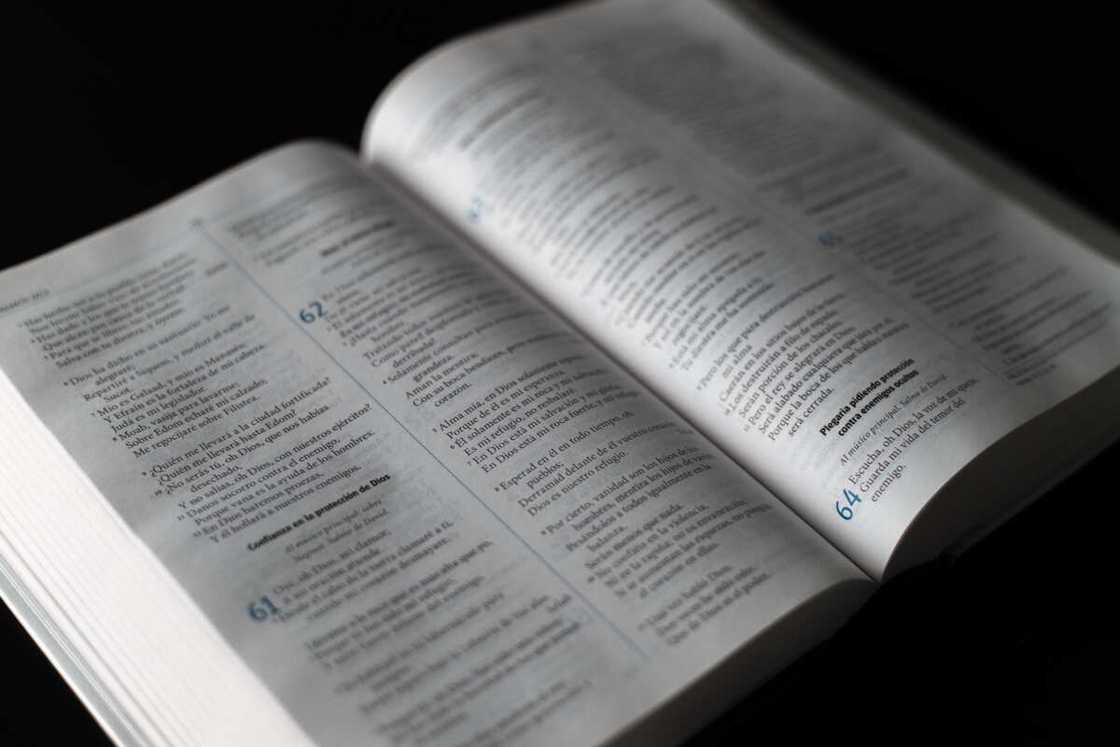Is the phrase "cleanliness is next to godliness" from the Bible?
The phrase "cleanliness is next to godliness" is a very common saying. Most people, when asked, believe that this phrase is from the Bible. It is often attributed to the Bible due to its moral and religious connotations, but it does not appear in any specific verse or passage within the Bible.

Source: UGC
The phrase is believed to be a proverb or aphorism that reflects the idea that being clean and maintaining personal hygiene is a virtuous and godly practice.
Is the phrase "cleanliness is next to godliness" in the Bible?
Contrary to what many believe, the phrase "cleanliness is next to godliness" is not from the Bible. Many people relate this phrase to the Bible due to the fact that it is very often heard in Christian homes.
"Cleanliness is next to godliness" origin.
It is believed to be found in the Babylonian and Hebrew religious tracts. But the first expression or use of this phrase in the English literature was a modified version of the proverb in the writings of Sir Francis Bacon, a philosopher and a scientist, in 1605. Sir Francis Bacon wrote:
Cleanness of the body was ever deemed to proceed from a due reverence to God.
Some years later, a popular Anglican cleric and theologian, John Wesley, made some sort of reference to the expression in one of his sermons:
Slovenliness is no part of religion...cleanliness is indeed next to godliness.
Over the years, different explanations from the Bible have been given to back up the phrase, even though the phrase cannot be found in the Bible.
What is the "cleanliness is next to godliness" meaning?

Source: UGC
The phrase "cleanliness is next to godliness" conveys the idea that maintaining cleanliness and personal hygiene is a virtuous and morally upright practice.
While it is not a direct biblical quote, it is often associated with religious and moral teachings that emphasize the importance of purity and cleanliness, both physically and metaphorically.
In the Bible, some of the laws of God to Moses and the Israelites had to do with the concept of "clean and unclean". The laws or guidelines instructed them to avoid eating certain things, which are termed as unclean.
Also, different instructions for washing and cleaning processes, especially for an unclean person, were given to them to follow before the person can be re-allowed into the community.
There were things God termed unclean and things that make people unclean, e.g. a woman in her period. They have to keep these laws and instructions in a clean state before approaching God.
However, Jesus stated in the New Testament that you are not defined by what you eat or don't eat or how well and often you wash your hands but by the things in your hearts. Jesus was not trying to discard the laws related to cleanliness but said this in reference to the state of man's morality, conscience, mind and spiritual state.
"Cleanliness is next to godliness" Bible verses

Source: UGC
Below are Bible verses that talk about cleanliness.
- Wash yourselves, make yourselves clean; Remove the evil of your deeds from My sight. Cease to do evil. - Isaiah 1:16
- Create in me a clean heart, O God, And renew a steadfast spirit within me. - Psalm 51:10
- If we confess our sins, He is faithful and righteous to forgive us our sins and to cleanse us from all unrighteousness. - 1 John 1:9
- You shall not make any cuts in your body for the dead nor make any tattoo marks on yourselves: I am the Lord. - Leviticus 19:28
- You blind Pharisee, first clean the inside of the cup and of the dish so that the outside of it may become clean also. - Matthew 23:26
- So Moses went down from the mountain to the people and consecrated the people, and they washed their garments. - Exodus 19:14
- Let us draw near with a sincere heart in full assurance of faith, having our hearts sprinkled clean from an evil conscience and our bodies washed with pure water. - Hebrews 10:22
The phrase "cleanliness is next to godliness" may not be in the Bible. Still, it encourages people to take care of their physical, moral, and spiritual well-being as a means to lead a virtuous and spiritually fulfilling life.
Legit.ng recently published happy new week message and prayer ideas. A new week is refreshing because it comes with new opportunities and hopes. It is time to focus on your life's goals and purpose.
A new week can be intimidating since you don't know what to anticipate. Getting a message or prayer for the new week will motivate you to start fresh and powerful.
Source: Legit.ng




